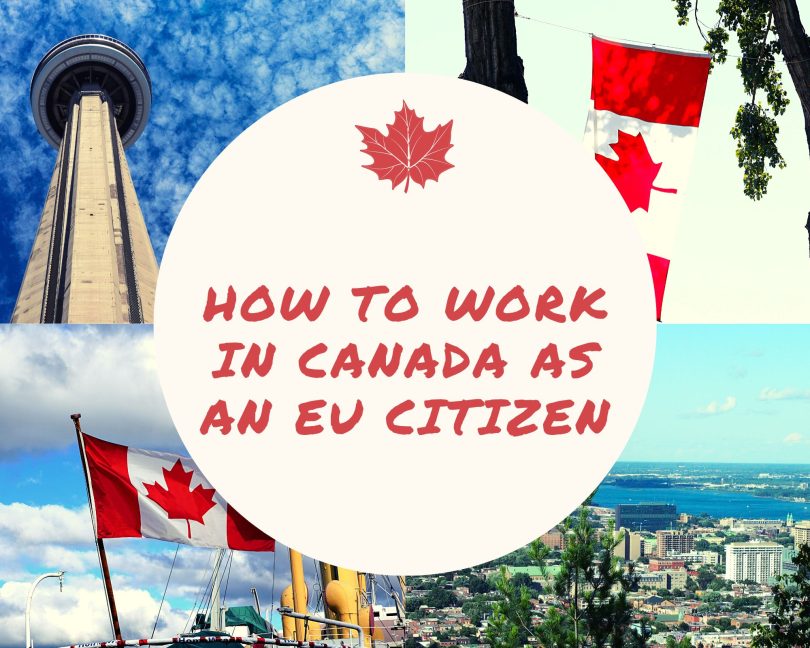In accordance with the provisions in the Comprehensive Economic and Trade Agreement (CETA) between Canada and the European Union, work permits are currently issued to EU citizens by Canada. September 2017 witnessed the implementation of the agreement. It also outlines what is required for working permits to EU citizens wishing to be employed in Canada and the reverse. This article provides additional information on the prerequisites and how to apply for it.
CETA Work Permits for CanadaMany EU citizens can now apply for a visa to work for Canada by submitting a CETA without the requirement of completing an Labor Market Impact Assessment (LMIA). This means EU citizens are not given a higher priority over Canadian residents in a job in which they are competent. A EU citizen could meet one of the five requirements under CETA to be qualified to receive simplified Canadian work authorization, without needing to obtain an LMIA. They are:
CETA Business Visitors
CETA Investors
CETA Intra-Company Transferees
CETA Contractual Service Suppliers and Independent Professionals
CETA Work Permits For Engineering and Scientific Technologists
CETA Business Visitors
Under CETA Business travelers are able to visit Canada for a short period of time, without needing a work permit or Labour Market Impact Assessment (LMIA). An maximum time of up to 90 days could be a business visitor’s stay within any six-month time frame. Visitors coming to Canada under CETA can be granted multiple entries to undertake frequent visits to a specific project. There are two kinds of business visits under CETA:
Visitors from the business world for investment purposes
Specialized or managerial positions that are responsible of establishing a business belong to this group. Business travelers is not permitted to conduct business directly with public members and cannot accept payments through Canadian sources.
Visitors to business for short-term
People who visit Canada for business and are engaged in any of the authorized activities fall in this category. It is not allowed for business travelers on short-term visits to offer goods or services directly to customers or to accept payment from an Canadian source.
Activities Allowed to Business Visitors
Consultations and meetings
Research and design
Marketing research
Marketing seminar
Translation and interpretation
Sales (not an direct sale to the general public)
Acquiring
Support after purchase or after lease
Trade shows and exhibitions
Business dealings
The work in the tourism industry and activities related to it
Limitations for Business Travelers of CETA
They aren’t eligible to be paid through Canadian sources, whether through direct payment or in indirect ways.
They are not authorized to provide any service that aren’t listed in Annex 10-D.
The general public is not able to buy an item or a service from them.
CETA Investors
Investors from EU member states might have the opportunity to obtain an employment visa to Canada in accordance with CETA without the need to complete an Labour Market Impact Assessment (LMIA). A person applying for a visa must satisfy the following requirements to be qualified to apply for CETA as an investor:
Participate in the development and growth, management or management of an investment, in a supervisory or executive job
Investors must be the ones who invest;
Work for a company which has made a major capital commitment to Canada at some point in time, or is currently making one.
CETA’s (NAFTA) investor requirements will be used when evaluating investors. Work permits that are exempt from LMIA, for a maximum period of one year, with the possibility of extended extensions based on the decision of a visa official and may be granted to investors who are recognized by CETA. People who wish to apply for CETA work permits without having to submit an LMIA CETA work permit and not have to apply for an LMIA could do so complying with instructions for CETA permit application procedures.
CETA Intra-Company Transferees
Transferees from businesses that are based in EU countries could be eligible to obtain an Canadian worker’s permit through CETA without having to submit an Labour Market Impact Assessment (LMIA). In order for intra-company transferees to be eligible to be exempted from LMIA requirements they must meet the following general requirements:
You must have been employed by or as a partner in a business in the EU Member state over at least one year.
It is necessary to temporarily transfer the company to an Canadian firm with the parent company, branch subsidiary, head connection to the EU company.
Transferees within a company are divided in three distinct categories having distinct requirements, along with the common requirements:
Senior Personnel: As per the North American Free Trade Agreement (NAFTA) the position corresponds to “executive capacity.” qualified to be granted a three-year work visa that is renewable for up to 18 months.
Specialists: NAFTA’s version”specialists” is “specialized knowledge” positions. The candidate is eligible for a 3-year work permit that is renewable for up to 18 months.
Graduate Apprentices: Must transfer temporarily to an Canadian business for development or for business education and must hold an undergraduate degree. You can get the work permit for one year with no possibility of renewal.
Anyone who wants to apply for an CETA work permit but do not need to provide an LMIA is able to do so through instructions for CETA permit application procedures.
CETA Contractual Service Suppliers and Independent Professionals
The Labour Market Impact Assessment (LMIA) might not be required for some independent professionals or contractual service providers that are EU citizens to be granted an employment permit in Canada in accordance with CETA. Comprehensive Economic and Trade Agreement (CETA). Independent and contractual service providers as well as professionals must satisfy the following conditions (as as well as the specific conditions outlined below) to be eligible to be exempted from the LMIA requirement:
People who reside in a Member of the European Union who are temporarily offering a service for the duration of a maximum of one calendar year.
The service has to be covered under any from the National Occupation Classifications (NOC) Codes within Canada’s CETA commitments for Independent Professionals and Contractual Service Suppliers table.
Independent professionals and contract service providers must meet additional requirements in addition to general specifications:
Contractors who provide services: People of EU-based companies with a contract to provide services to an Canadian client. It is not possible to locate a place for the EU company in Canada. Along with being able to provide at-least one year’s experience working for an EU company, an candidate must possess at least three years of experience within the sector in which service will be offered.
Professionals who are self-employed A contractor who is independent to offer a service to an Canadian client. You must be a reputable freelancer with at minimum six years’ experience in the industry that the service is to be performed.
Anyone who wants to apply for an CETA work permit but do not need to provide an LMIA will be able to apply for one through steps in the CETA permit application procedures.
CETA Work Permits For Engineering and Scientific Technologists
Engineers and scientists comprise the two groups in which technicians are split by CETA. Except for academic qualifications, scientists and engineering technologists must adhere to the same standards that we previously dealt with for professional contractors and independent suppliers.
Academic Criterion for Engineering Technologists
They should have graduated from the three-year postsecondary course at an engineering technology institute with official recognition. The degree will be regarded as equivalent to the equivalent of a university degree.
Academic Criterion for Scientific Technologists
A three-year postsecondary degree from an accredited institution in the fields of architecture, agriculture and chemistry, biology, geophysics, forestry, physics geophysics, mining as well as energy, is needed. The degree is also considered as if it came from the university.
CETA Application Procedures
Applications for an LMIA-exempt work permits or to enter Canada without the need for a work permit (short-term business travelers) can be accepted from foreign citizens covered under CETA in every Canadian ports for entry (POE). Prior to departure the country, applications for work permits can be submitted to the appropriate Visa Application Center (VAC). A EU citizen may be able to obtain a working permit within Canada when they already are an official permanent resident in the country. Work permits that are extended issued under CETA can be granted according to the discretion of an immigration officer. Transferees from the same company can apply for an extension of up to 18 months. Extensions are not allowed for graduate students.
References
https://www.google.com/url?sa=t&source=web&rct=j&opi=89978449&url=https://iasservices.org.uk/ca/work/canada-work-permit/%23:~:text%3DCETA%2520Work%2520Permits%26text%3DIf%2520you%2520are%2520a%2520citizen,Investors&ved=2ahUKEwjegIK6yqWDAxU6XUEAHbHbCMcQFnoECA4QBQ&usg=AOvVaw2iu3-ButB1L7yft2EEJKBZ








Leave a Comment